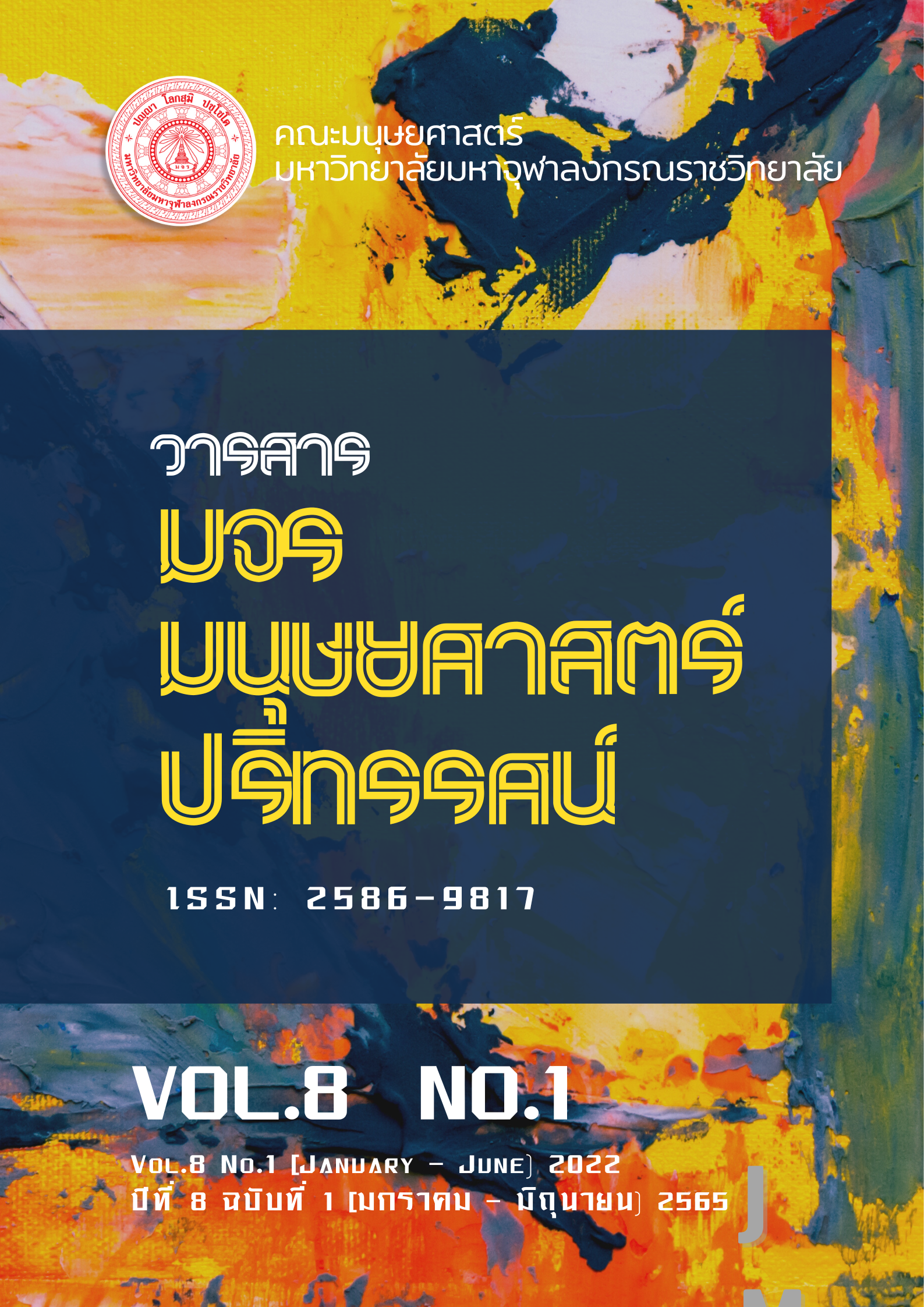ความสัมพันธ์ระหว่างการปฏิบัติตามหลักอิทธิบาทกับประสิทธิผลการบริหารงานวิชาการของผู้บริหารสถานศึกษาสังกัด สำนักงานเขตพื้นที่การศึกษามัธยมศึกษาสุราษฎร์ธานี ชุมพร
คำสำคัญ:
หลักอิทธิบาท 4, การบริหารงานวิชาการ, ผู้บริหารสถานศึกษาบทคัดย่อ
การวิจัยครั้งนี้มีวัตถุประสงค์เพื่อ 1) ศึกษาการปฏิบัติตามหลักอิทธิบาท 4 ของผู้บริหารสถานศึกษา 2) ศึกษาประสิทธิผลการบริหารงานวิชาการของผู้บริหารสถานศึกษา 3) ศึกษาความสัมพันธ์ระหว่างการปฏิบัติตามหลักอิทธิบาทกับประสิทธิผลการบริหารงานวิชาการของผู้บริหารสถานศึกษา เป็นการวิจัยเชิงปริมาณ กลุ่มตัวอย่างที่ใช้ในการวิจัย ได้แก่ ผู้บริหารสถานศึกษาและหัวหน้ากลุ่มบริหารงานวิชาการสถานศึกษาสังกัดสำนักงานเขตพื้นที่การศึกษามัธยมศึกษาสุราษฎร์ธานี ชุมพร โดยให้ข้อมูลแห่งละ 2 คน รวมทั้งหมด 114 คน เครื่องมือที่ใช้ในการวิจัยเป็นแบบสอบถาม สถิติที่ใช้ในการวิจัย ได้แก่ ค่าร้อยละ ค่าเฉลี่ย ค่าเบี่ยงเบนมาตรฐาน สถิติทดสอบความสัมพันธ์ใช้ค่าสัมประสิทธิ์สหสัมพันธ์แบบเพียร์สัน
ผลการวิจัยพบว่า
- การปฏิบัติตามหลักอิทธิบาท 4 ของผู้บริหารสถานศึกษา โดยรวมอยู่ในระดับมากที่สุด เมื่อพิจารณาเป็นรายด้าน พบว่า ด้านจิตตะ คือ ความเอาใจใส่รับผิดชอบงาน มีค่าเฉลี่ยสูงสุด รองลงมาคือ ด้านฉันทะ คือ ความรักงาน - พอใจกับงานที่ทำอยู่ ส่วนด้านวิมังสา คือ การพินิจพิเคราะห์ หรือ ความเข้าใจทำงาน มีค่าเฉลี่ยต่ำสุด
- ประสิทธิผลการบริหารงานวิชาการของผู้บริหารสถานศึกษา โดยอยู่ในระดับมากที่สุด เมื่อพิจารณาเป็นรายด้าน พบว่า ด้านหลักสูตรและการบริหารหลักสูตร มีค่าเฉลี่ยสูงสุด รองลงมาคือ ด้านการวัดผลประเมินผลการศึกษา ส่วนด้านการจัดการเรียนการสอน มีค่าเฉลี่ยต่ำสุด
- สัมประสิทธิ์สหสัมพันธ์ระหว่างการปฏิบัติตามหลักอิทธิบาทกับประสิทธิผลการบริหารงานวิชาการของผู้บริหารสถานศึกษา โดยรวมมีความสัมพันธ์กันทางบวก อยู่ในระดับค่อนข้างสูง อย่างมีนัยสำคัญทางสถิติที่ระดับ .01 ความสัมพันธ์ระหว่างการปฏิบัติตามหลักอิทธิบาทกับประสิทธิผลการบริหารงานวิชาการของผู้บริหารสถานศึกษา โดยรวมมีความสัมพันธ์กันทางบวกในระดับค่อนข้างสูงอย่างมีนัยสำคัญทางสถิติที่ระดับ .01 ทุกค่า
เอกสารอ้างอิง
กานดา สังข์ชุม. (2556). ความสัมพันธ์ระหว่างการปฏิบัติงานตามแนวทางอิทธิบาท 4 กับสมรรถนะการบริหารงานวิชาการของผู้บริหารสถานศึกษาสังกัดกรุงเทพมหานครกลุ่มกรุงธนเหนือ (วิทยานิพนธ์ปริญญาครุศาสตรมหาบัณฑิต). มหาวิทยาลัยราชภัฏธนบุรี : กรุงเทพฯ.
ทัศนีย์ กรรณิกา. (2558). ความสัมพันธ์ระหว่างการบริหารงานวิชาการกับประสิทธิผลทางวิชาการของโรงเรียนเอกชนในจังหวัดนครสวรรค์ (วิทยานิพนธ์ปริญญาครุศาสตรมหาบัณฑิต). มหาวิทยาลัยราชภัฏนครสวรรค์ : นครสวรรค์.
เนติกานต์ พัทบุรี. (2557). ความสัมพันธ์ระหว่างทักษะการบริหารงานของผู้บริหารสถานศึกษาขั้นพื้นฐานสังกัดสำนักงานเขตพื้นที่การศึกษาพัทลุง (วิทยานิพนธ์ปริญญาครุศาสตรมหาบัณฑิต). มหาวิทยาลัยราชภัฏยะลา : ยะลา.
พระเทวา ภทฺราวุโธ (2557). ประสิทธิภาพการบริหารงานวิชาการในโรงเรียนประถมศึกษาเขตสวนหลวงสำนักงานเขตพื้นที่การศึกษากรุงเทพมหานครเขต 2 (วิทยานิพนธ์ปริญญาพุทธศาสตรมหาบัณฑิต). มหาวิทยาลัยมหาจุฬาลงกรณราชวิทยาลัย :พระนครศรีอยุธยา.
พระมหาวุฒิกร บัวทอง. (2557). การใช้หลักอิทธิบาท 4 ในการบริหารงานของผู้บริหารโรงเรียนตามความคิดเห็นของครูโรงเรียนพระปริยัติธรรมแผนกสามัญศึกษาในกลุ่ม 7 (วิทยานิพนธ์ปริญญาครุศาสตรมหาบัณฑิต). มหาวิทยาลัยราชภัฏเลย : เลย.
พระมหาอภิลักษณ์ จักรแก้ว. (2558). การศึกษาบริหารงานวิชาการโรงเรียนพระปริยัติธรรมแผนกสามัญศึกษาสังกัดสำนักงานพระพุทธศาสนาแห่งชาติกลุ่ม 1 (ปริญญานิพนธ์การศึกษามหาบัณฑิต). มหาวิทยาลัยศรีนครินทร์วิโรฒ : กรุงเทพฯ.
พระวัชรินทร์ ชินวโร. (2555). บริหารงานวิชาการตามหลักอิทธิบาท 4 ของโรงเรียนสังกัดเทศบาลนครศรีธรรมราช (วิทยานิพนธ์ปริญญาพุทธศาสตรมหาบัณฑิต). มหาวิทยาลัยมหาจุฬาลงกรณราชวิทยาลัย : นครศรีธรรมราช.
ราชกิจจานุเบกษา. พระราชบัญญัติการศึกษาแห่งชาติ พ.ศ.2542 และที่แก้ไขเพิ่มเติม (ฉบับที่ 3) พ.ศ. 2553 เล่ม 127/ตอนที่ 45 ก/หน้า 1/2 กรกฎาคม 2553.
สภาวดี บริกุล. (2557). ความสัมพันธ์ระหว่างการปฏิบัติงานตามหลักอิทธิบาท 4 กับประสิทธิภาพการทำงาน : ศึกษากรณีบริษัทดูเม็กซ์จำกัด (ปริญญาพุทธศาสตรมหาบัณฑิต). มหาวิทยาลัยมหาจุฬาลงกรณราชวิทยาลัย : พระนครศรีอยุธยา.
สำนักงานคณะกรรมการการประถมศึกษาแห่งชาติ. (2554). คู่มือบริหารวิชาการระดับประถมศึกษา. กรุงเทพฯ : คุรุสภา.
Gutman, Mary. (2021). Retrospective View of the Early Career: Three Landmarks in Building Resilience in Academic Administration among Israeli Teacher Training College Principals. Israeli.

ดาวน์โหลด
เผยแพร่แล้ว
รูปแบบการอ้างอิง
ฉบับ
ประเภทบทความ
หมวดหมู่
สัญญาอนุญาต
ลิขสิทธิ์ (c) 2022 วารสาร มจร มนุษยศาสตร์ปริทรรศน์

อนุญาตภายใต้เงื่อนไข Creative Commons Attribution-NonCommercial-NoDerivatives 4.0 International License.





